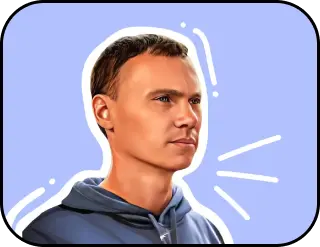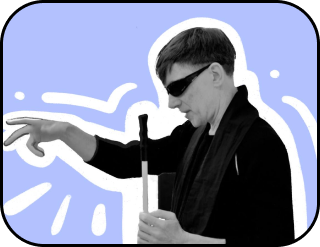Category: Global minds
Magic is the pursuit of wholeness. Global confession of a global esoteric practitioner
In a world where dominant narratives reduce reality to binary codes and chemical reactions, and the opinions of algorithms increasingly drown out the inner voice, we continue to search for meanings that lie beyond conventional understanding. What if this search is not an escape from reality, but an attempt to return to its original, multidimensional fullness? A place where intuition, synchronicity, and subtle perception are not atavisms, but forgotten tools of cognition capable of complementing the picture of the world that science paints for us.
Our guest is not a seer or a mystic, but a researcher. She proposes viewing esotericism not as a set of dogmas, but as a living language for dialogue with one’s own soul and a complexly structured reality. In this conversation, we set aside popular stereotypes to discuss how ancient practices of self-discovery intersect with concepts from quantum physics, why responsibility is the cornerstone of any spiritual work, and whether a common denominator can be found between a mathematical formula and a human destiny.
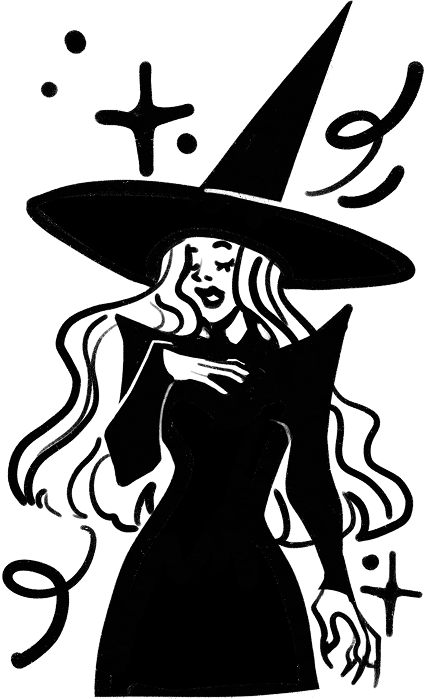
We were joined by a practicing witch, Dorothea, who lives in harmony with forest spirits and possesses skills in candle magic.
— Dorothea, thank you so much for agreeing to this interview. Let’s start our conversation with a question that interests everyone: what is esotericism?
— Esotericism is a special language. For example, there is the English language, which you can use to speak with people, and there is the language of feelings, the language of a certain inner search. We don’t only comprehend the world through formulas, right? Sensations, intuition—these are all real things, too. Well, esotericism is precisely such a language, the language the soul uses to seek answers to the most important questions. And at the same time, esotericism is such a cool tool for getting to know oneself. In this sense, esotericism is one hundred percent knowledge, just of a slightly different kind.
I resonate with one crazy idea, the concept that our consciousness or soul could have shattered into many fragments. And when we travel, climb mountains, seek new experiences, we are, at some level, precisely searching for and collecting these lost little pieces of ourselves. And they can be not only in different points on the planet but even in other realities altogether!
Speaking of other realities: those who adhere to conspiracy theories link the fragmentation of the soul to the launch of the Large Hadron Collider in 2008-2009. It could have caused a certain “shift,” after which we all now find ourselves in an alternate timeline. Of course, science doesn’t confirm this, but the idea itself reflects just how fragile our world is.
— You speak of the fragility of the entire world and large systems. How does this fragility manifest in the life of an individual? Is there some sort of “system of systems” that explains why we, with our personal souls and paths, find ourselves inscribed into such global structures as religion, science, or even working for the same company?
— Indeed, the soul is the foundation of everything; esotericism is the native language of the soul. Unlike, say, the language of mathematics with its rigid “two times two is four.”
This knowledge leads us to egregores. Simply put, egregores are such energy-informational structures that form around ideas, beliefs, or even communities. For example, being baptized, I am within the Christian egregore—I can draw support from it, but I also give my energy to it.
The soul comes into this world to gain human experience, but immediately falls into a whole web of egregores—religion, science, society. Often these systems argue with each other, but in essence, they are all just different languages that help us understand ourselves and the world around us.
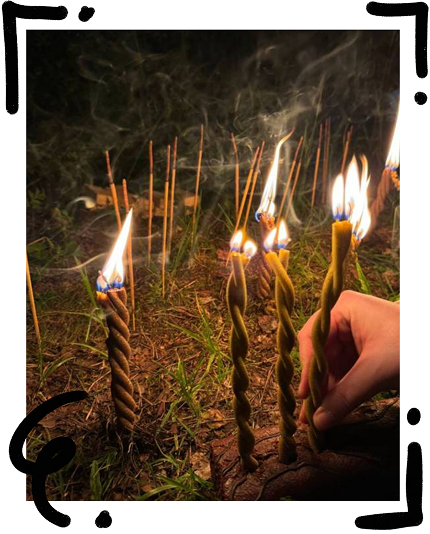
For instance, you and I, working for the same company, are also in the same egregore with its own rules and energy exchange. And all these languages, these systems, are given to us so that we may know ourselves in all this mad and beautiful fullness of the world.
— Dorothea, can esotericism be called knowledge?
— Unconditionally, yes.
— So, can this knowledge be taught?
— You know, your question reminds me of an old debate: can a person be taught to be a poet? Can you explain how to see the world through metaphors?
Well, esotericism is not a set of facts you can simply memorize. It’s more of an ability—to hear the whisper of intuition, to notice signs, to feel energy. So, when someone wakes up with the thought “I want to become an esotericist”—that’s only the beginning of the path.
And immediately, the most important question arises—the question of responsibility. Imagine this: a person reads a few blogs for a week and already runs their own channel “about spirituality,” not even realizing that their words could become that very stone thrown into water for someone, with ripples that spread very, very far. When you speak about things that touch the soul, you are responsible for it.
We are all very different. The same Tarot spread for one person will be just an interesting hint, while for another, it could become a trigger for a serious crisis. That’s why a true esotericist must sense the fine line: where support ends and intrusion begins, where help is, and where manipulation lies.
— Esotericism has no single canon, and with the advent of digitalization, humanity has become mired in a multitude of different teachings.
— Well, yes, that’s true. But there’s a plus to this as well: nowadays, everyone can find what resonates specifically with them. Some need a strict system like Kabbalah, others prefer light dialogues with Tarot cards, and some find themselves in astrology, studying cycles.
But all of this is united by one simple idea: beyond our everyday reality lies another one, deeper, more complex, and filled with meaning. And we need different “languages” to speak about it.
So, can esotericism be taught? Techniques—yes. To meditate, work with symbols, calculate numbers—that can be taught. But the most important thing—to hear the voice of your own soul—that cannot be taught. It comes only with experience, through personal joys and pains, through that very “human experience” which is our main school.
So, the morning impulse to “become an esotericist” is just great, but the path itself is a long journey to oneself through all the acquired knowledge. And on this path, it’s important to remain honest with yourself and remember that your words and actions can strongly influence others.
— What is the fundamental difference between a person who meditates using a stress-reduction app and someone who does it as a spiritual practice? Isn’t the original, sacred meaning devalued when it turns into a productivity tool?
— Spirituality is unique to each person: for some, it’s yoga; for others, it’s fishing alone; and for others still, it’s baking bread. And this is where it gets really interesting—how these seemingly “esoteric” practices gradually enter our ordinary lives and even science.
Take meditation, for instance. About 30 years ago, in the West, it was considered something marginal, but now neuroscientists are actively studying how it changes the brain’s structure and calms the nervous system. What was once part of spiritual traditions has become a tool in psychology and wellness.
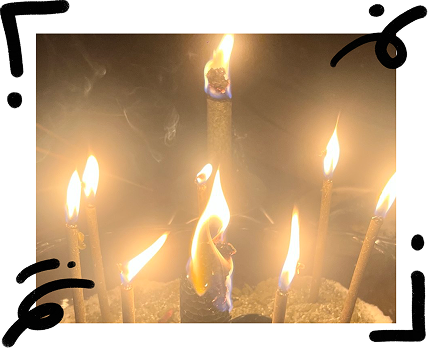
Or mindfulness techniques. They are the best illustration that the boundaries between “esotericism” and “science” are actually very conditional.
Unfortunately, in the current digital age, esotericism has become accessible to everyone. On one hand, this has spawned strange phenomena like “luck rituals” on social media; on the other hand, it has given thousands of people the opportunity to find “their own” language for talking with their soul. You no longer need to be an initiate; you can simply find a practice that resonates with you.
So, when I talk about esotericism today, I mean this whole spectrum—from ancient rituals to modern mindfulness courses. They are united by one simple thing: the aim to help us not lose ourselves in a world where the main imperative is to “do,” not to “be.” And in this light, 666 is not a scary symbol, but a rather friendly hint: “Don’t get bogged down in routine, don’t forget about something greater.”
— Dorothea, does everyone need esotericism, like, for example, mathematics, or not everyone?
— Well, look, if you have a new car that runs smoothly and without problems, why would you crawl under the hood with a wrench every day? You just get in and drive, enjoying the road. It’s the same with life! If a person is harmonious, happy, and untroubled, why would they dig into subtle matters? Let them live and rejoice—that’s the ideal!
But if a warning light comes on or there’s an unexplained knocking sound, what do you do? You open the manual and take the car for diagnostics. Esotericism is precisely that “diagnostic scanner.”
Most often, people turn to this scanner in two cases: when they’re “in a pinch”—a signal has been received that there’s a glitch in their deep settings—and in the case of healthy curiosity. And the key here is not to slide into dependency: checking once to see if there are any obvious potholes on the path—that’s wisdom. But when a person starts asking the cards what color socks to wear, they are simply handing over their willpower and right to choose to others, voluntarily sitting in a cage and asking to be fed ready-made answers. That’s no longer development; it’s spiritual laziness.
Esotericism is needed by everyone who feels an inner need for it. It’s like a headache pill—indispensable when it hurts, and completely unnecessary if everything is fine. Its goal is not to complicate life, but to simplify it, to return peace and clarity to you. And if nothing hurts, then so much the better, as you said. Your happiness and harmony are the highest spiritual indicators.
— Dorothea, do sorcerers exist?
— Yes, there are people who call themselves that and work with what can be called the subtle planes of reality. But the essence is not whether they exist, but in how they work. And this is where the most important part begins.
We all constantly conduct an internal dialogue, and beliefs like “I can’t do it,” “I’m not worthy,” “It always happens to me like this”—in an esoteric sense—are direct programming of one’s own field. A person builds a prison around themselves made of the same unsuccessful scenarios and walks in this circle. That is the real “evil eye” or “curse.” Most often, we don’t even need an external enemy; we can manage it all ourselves.
It’s the same as with hackers: “white hat” and “black hat” hackers use the same tool, the same knowledge about system vulnerabilities, but intention decides everything. It’s the same here.
A so-called “white” practitioner finds a destructive belief and helps to “correct” it. Their goal is to balance, to heal, to give you resources so you can transition to a brighter “branch” of your life. They work with your will. A “black” or simply unscrupulous practitioner uses the same vulnerabilities; their goal is not healing, but control.
But you can’t work only for the “light”—this is the main law, the law of balance. Any force in our world has a reverse side, and true power is born not from choosing one pole and ignoring the other, but from the ability to hold this tension and consciously choose where to direct one’s will. A shaman who goes to the spirits for healing for one person might ask them for just retribution for another. They work not with abstract “good” and “evil,” but with the forces of the universe, which are neutral in themselves. And only the practitioner’s intention colors them in one shade or another.
This is precisely why your personal experience—the kind where you found a way out yourself—is priceless. It means you are not a theorist; you are a practitioner who has walked the path. You know this labyrinth from the inside and can become the one who offers a hand to another who is lost in it.
So yes, sorcerers and shamans exist. But their true power is determined not by the ability to whisper spells, but by the depth of their personal inner work, the strength of their ethical core, and the understanding that every action has a consequence. Ultimately, the most powerful magic is the magic of a transformed consciousness that has managed to break free from the cycle of suffering and help others do the same.
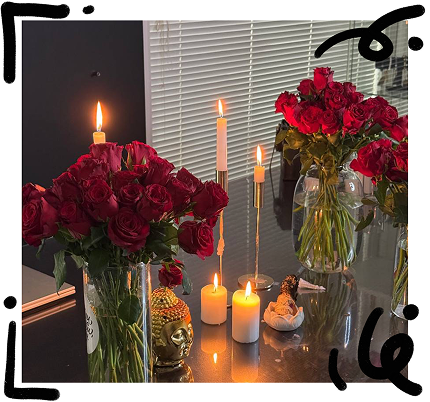
— Do Satanists exist?
— Ah, that’s an excellent question that immediately shatters the main stereotypes! We’re not talking about the Satanism from horror movies, but about a philosophical system, for example, LaVey’s Church of Satan. Well, if you look into it, their ideas are the complete opposite of the demonized image shown to us in films.
The essence of Satanism is not the worship of evil, but radical individualism and common sense. Satanists don’t perform bloody rituals or form cults. It’s quite the opposite: their philosophy is built on personal freedom and responsibility—it’s about self-development, not servitude to something external, be it God, the Devil, or any other authoritarian figure.
— It sounds like a sort of set of “golden rules.”
— You’ve very accurately quoted their key principle: “If you are a guest in another’s house, show respect.” This isn’t just a rule of politeness; it reflects the core idea: respect for another’s personal boundaries and freedom is the foundation of everything. For a Satanist, intrusion into another’s space and any form of coercion are precisely what constitute evil.
Respecting another’s inner world, not imposing one’s views, and not causing harm—this is not weakness, but a conscious ethical choice.
And you know what’s most interesting? For all its external outrageousness, Satanism turns out to be one of the most tolerant systems. It doesn’t try to convert everyone to its faith, doesn’t claim to hold the only truth, and simply defends everyone’s right to their own path. LaVey himself said, “Satan does not want slaves, he wants personalities.”
And this, by the way, perfectly echoes what I said earlier about different languages of cognition. It turns out Satanism is another language—one that speaks not of hatred, but of freedom. Not of destruction, but of respect for the personal space of every soul.
Speaking of symbols. If we’re talking about Satanism, we can’t forget the most famous trope—the number 666. Is it truly the “number of the beast” from an esoteric perspective, or is it, like Satanism itself, not so black and white?
— Oh, that’s a very cool question! It’s precisely about how the same symbol can completely change meaning depending on the context. In numerology, the number 666 is not the “number of the beast” at all; it’s a signal for spiritual awakening.
The digit 6 itself is about harmony, home, care. And when it’s tripled, it becomes hyper-focus on the material world—when a person gets so immersed in daily chores, work, social media, that they forget about their inner life.
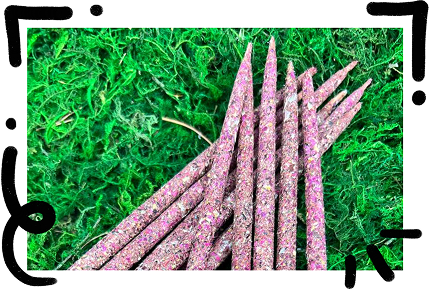
So, the “beast” here serves as a reminder: “Hey, stop for a second. Take a breath. Don’t forget that besides deadlines and mortgages, there’s still you, your feelings, and something greater.”
— Dorothea, who, besides Satanists, most often hides under the label “esotericist” today?
— A cult is always about community, about worshipping a leader or an idea. But Satanists (I’m talking about LaVey’s followers now) precisely do not worship anyone. They are radical individualists who live by themselves, in the material world, and they typically don’t engage in esoteric practices.
On the other hand, those who harm cats or dogs, supposedly as a “sacrifice to Satan,” are usually either mentally unwell people or marginal cults. By the way, real animal sacrifice is the domain of certain shamanic traditions, for instance—to obtain a major energy surge, one must place an animal’s life “on the scales.” It’s a complex ethical issue, but it has no relation to philosophical Satanism.
Now, about my favorites—tarot readers and numerologists!
Take cards, for example. There are Tarot cards, and there are the less known but very interesting Lenormand cards. Do you know that story? That’s the Mademoiselle Lenormand who predicted victories for Napoleon. She warned him about everything, but at some point, he stopped listening to her and ultimately lost everything. Well, her deck is very metaphorical, based on symbols from playing cards.
And all these cards—Tarot, Lenormand—sort of “suggest” answers to us because they are a huge egregoric system, allowing you to connect to an entire informational field. But to use them, it’s not enough to just memorize meanings; you need to feel the energies, see how one card changes the meaning of another, how they combine into a unique story.
And here’s the problem: nowadays, every other schoolgirl thinks you can become a tarot reader just by memorizing interpretations from the internet. This devalues the entire field. But in reality, cards are a subtle instrument that requires not memory, but genuine feeling and understanding. But good tarot readers do exist. And good numerologists too, but there are very few of them.
— Then here’s a question: how can you tell a serious practitioner from a charlatan who preys on people’s misfortune and ignorance?
— Your intuition is the only compass you can trust unconditionally. Everything else is just a reference point.
Imagine you come to a person for help, but after talking to them, you leave not with a solution, but with a burden so heavy it’s hard to breathe. Because the practitioner doesn’t explain—they intimidate; they don’t offer a path—they paint nightmares: “evil eye,” “curse,” “spinsterhood curse.” Their words, instead of giving you strength, paralyze you. After the session, you want to hide because the world seems hostile, and you feel like a helpless victim. This is the main marker of a charlatan. They don’t heal; they cripple, so that you keep coming back to them again and again as the only savior.
Now imagine a different picture. You’re talking to a person, and even if the conversation is about painful things, in their presence you feel supported. They don’t promise instant miracles but help you untangle the knot of problems. They speak to you as an equal, don’t pull rank, but instead, it’s as if they’re shining a flashlight in the darkness, showing you: “Look, the path is here. And you can go around this cliff.” They don’t make you dependent; on the contrary, they put tools in your hands so you can manage your own life. After talking to them, there’s no heavy residue of fear left in your soul, but a strange, yet so precious, feeling of calm and clarity arises, an understanding that you can handle this.
The difference is in the energy you feel: one drains your strength and sows chaos; the other gently guides and returns you to yourself, to your own inner strength.
And another sure sign: a charlatan doesn’t care about you. Their “diagnosis” will be generic. A true practitioner will feel you, your unique situation. Their advice will resonate because it’s born not from fear, but from a deep understanding and respect for your path.
So, the main question to ask yourself after any session is this: “Do I feel stronger or weaker right now?” The answer from your body and soul will never lie. Trust the voice inside you; it knows the truth.
— Dorothea, since we’ve started talking about charlatans, we have to touch on the topic of the ‘evil eye’ or ‘curse’ (porcha). Does it actually exist?
— Of course it exists. But it’s important to understand that it’s not always some complex magical action. Often, it’s simply a very strong, poisonous word said in a fit of rage.
Here’s a vivid example from life. An acquaintance of mine was so angry at someone who had wronged her that she even shouted terrible things at him in her sleep: “May everything go wrong for you, may your children…” And you know, that can also be considered a curse. It’s a powerful energetic emission of hatred that can cause real harm.
But there is also another kind of curse—a targeted magical influence, done, for example, through a cemetery. However, distinguishing one from the other is practically impossible without a proper diagnosis.
— So how does a real, professional diagnosis actually work?
— How is it done? There are many ways. Through spirits, through the astral plane. Tarot cards are also a good tool, but more of a guiding one; for precise diagnosis, something more powerful is needed, like runes, for instance. Really, every practitioner has their own instrument.
Speaking of runes… I don’t work with them myself because they are incredibly powerful and even dangerous. They are thousands of years old, and using them, you can set processes in motion in a person’s life that are no joke. They are not a toy. Only a select few can work with runes, and even many practitioners get burned doing it. It’s like working with the gods directly, bypassing all intermediaries. It’s a pure, ancient channel of power, which is why I prefer to keep my distance.
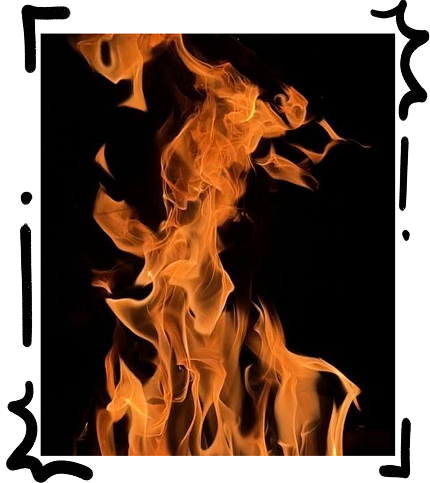
People often underestimate them. Even something as simple as activation by fire can be dangerous because you could simply burn your etheric body. It all depends on how that energy settles.
Really, the world of subtle matters is like a complex code. And you need to find the keys to it with immense respect and an understanding of the responsibility involved.
— Is there an ethical responsibility for an esotericist?
— All ancient teachings speak of the same thing, just in different languages—as if they are looking at the same mountain from different sides. The essence doesn’t change: harmony, connection with the Universe, the law of cause and effect. And yes, everyone must find their own “language,” their own “pill.” For some, it’s cards; for others, it’s prayer.
Is the practitioner responsible? Yes. And that responsibility is for the souls of those who have entrusted their pain to you. And you handle it because you remain not a soulless oracle, but a sensitive human being who remembers that there is always a living person on the other end.
— This leads to another question: isn’t esotericism a tool for shifting responsibility?
— You’re talking about a very important and bitter paradox. People are ready to invent any god, any devil, any higher power—just to avoid looking the truth in the eye: I myself made this choice. I myself pulled the trigger. And this shadow lives in me too.
Egregores, gods, devils—they are all real, but they feed on our belief and our actions. It’s not them controlling us like puppets; it’s us, through our thoughts and deeds, who give them power and use them to justify our own darkness.
“‘The devil made me do it’ is the most convenient and cowardly myth, because if it’s the devil, then where am I? Where is my will? Where is my conscience?” It’s a magical way of self-annihilation: “It wasn’t my ‘I’ that did this, but something in me.”
But in reality, it’s simpler and more frightening. A person themselves, by their own free choice, decides every moment: to give in to envy or not, to unleash malice or restrain it, to inflict pain or show mercy. And all those who commit atrocities are not “possessed.” They are people who have voluntarily and with pleasure chosen the path of violence. They are not “infected,” because they themselves are the source of the infection.
And society is all too ready to believe in “possession” and write off monstrous acts as a “curse.” But as soon as someone takes up esotericism for self-knowledge, for seeking the light, they are immediately declared insane. Why? Because true esotericism demands one hundred percent responsibility. It says: “You are the cause of everything in your life. Your thoughts create your reality.” And that is the most terrifying truth. It’s much easier to believe that you are being controlled by someone than to admit: the helm has always been in your hands. And until a person looks in the mirror and says, “Yes, it’s me. This is my shadow. And only I can tame it”—nothing will change.
— Can esoteric claims even be refuted? And if not, how can one verify their validity and separate illusions from real experience?
— Esotericism isn’t about experiments; it’s more about personal experience. If it helps you, makes your life better, more harmonious, then it works. You can keep an observation journal, but don’t go to extremes, as there are cases where people create illusions for themselves, so you need to be able to separate illusions from reality.
— Since we’re talking about illusions and reality, let’s discuss esotericism and science. Science relies on observation, experiment, and rational thinking. What “tools of cognition” does esotericism rely on?
— On intuition, first and foremost. Dreams are also important, as are symbols and internal sensations.
— How can one verify that these tools aren’t misleading?
— You need to maintain a sober mind and not believe absolutely everything. Keep a journal of observations, verify all information. And yet, don’t delve into things unnecessarily. That’s important.
Even in the most famous books, you need to take everything with a grain of salt, because they contain roughly 10% of genuine information, and it’s crucial how a person perceives it. Take the Quran as an example—Islamists and Muslims. The scripture is one, but the people are different. And that, mind you, is a world religion
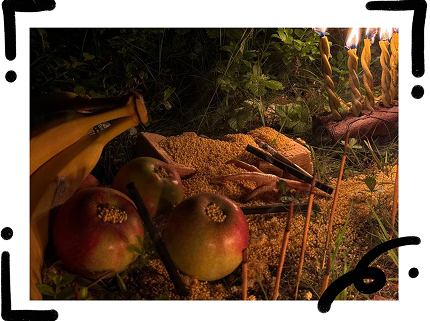
— In your opinion, what lies beyond the scope of science but still holds value for human experience?
— Things that cannot be measured by instruments and without which life loses its flavor: love, faith, inspiration. Especially the love between a mother and child.
Since childhood, right from school, I’ve had this conviction that everything in life can be calculated mathematically. I don’t know why, but I’m sure of it. I can’t prove it, but I’m certain.
When you talk about numbers, without even knowing it, you’re talking about numerology—the pure mathematics of the soul. And when you envision the harmony of the world, you approach sacred geometry with its golden ratio, which permeates everything—from galaxies to the cells of your body.
Quantum physics has revealed that the foundation of reality isn’t solid particles, but probabilities, information, mathematical relationships. What mystics called “currents of fate,” scientists call the “wave function.” We are simply approaching one truth from different sides.
The universe is perfect mathematics. It’s just that it calculates not only with numbers but also with feelings; not only with logic but also with meanings. Perhaps our task is precisely to learn to read these equations of the heart.
— What, ultimately, is the goal of the esoteric path?
— To understand oneself and to live in harmony with the world. People have forgotten who they are and what power they possess. Some seek power through service, others choose a different path, but the final destination is the same.
— Which common stereotypes about the esoteric sphere annoy you? And which ones might be fair?
— What annoys me the most is when our craft is turned into a cheap circus. In the past, people came to a wise woman as a last hope, with reverence and respect, but today social media is flooded with identical posts about “money flows” and “spinsterhood curses.” It seems like anyone with a deck of cards now hangs a “tarot reader” sign on themselves. It’s this external noise that understandably causes people to reject it. We get lumped in with fraudsters, and that’s hurtful, because genuine practice is backed by years of real, deep work.
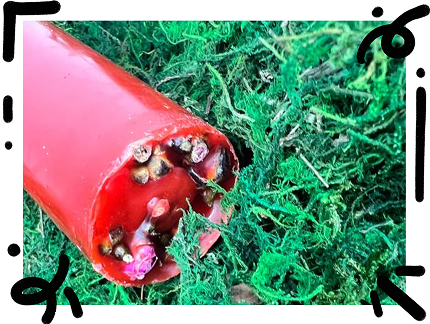
But, to be honest, some of the criticism is fair. The market is flooded with dilettantes who haven’t studied for years, can’t feel energy, and take no responsibility. They are the ones creating that terrible image which then becomes the stereotype. And such “specialists” can cause serious harm—telling a depressed person they’re “cursed,” or sowing discord in a family with an incorrect interpretation.
The biggest myth is to think that esotericism exists in some parallel world. In reality, its foundation is the practical hygiene of consciousness. Our destructive beliefs, that perpetual inner critic—these are the real “self-inflicted curses.” Esotericism simply provides the tools to recognize and correct them.
So, essentially, when a person comes to “find themselves,” they are coming for soul hygiene. They need to take out the trash from their head, tidy up their feelings, and hear their true desires. And there’s nothing shameful or “schizoteric” about that. It’s simply deep-level self-work, a level which official science doesn’t always reach yet.
— What would you say to a skeptic who calls all of this charlatanism?
— It’s normal to be a skeptic, especially when the skeptic has sufficient facts. You don’t have to believe everything, but you shouldn’t deny everything either. Esotericism has existed for as long as humanity itself. What will the skeptics say to that?
— If we speculate, how will the role of esotericism change in the future?
— I think it will either move closer to psychology or evolve into a cult of everyday magic, where every other person is a witch. Given that practicing esotericism is currently “fashionable,” we are observing the latter scenario.
— What esoteric practices would you recommend to a modern person as a tool, rather than as a belief system?
— Spend more time in nature. Don’t put life on hold. So many people from older generations regret how much they restricted themselves in their youth. There are also tools like meditation, gratitude journaling, and others. Stop feeding on illusions; stop postponing action. Want to quit your job and move to the seaside? Try it! What if it doesn’t work out? Keep taking action, take action until it does work out.
— Dorothea, how did you yourself come to esotericism?
I saw things others didn’t, and my stories frightened all my relatives. It wasn’t a hobby—it was my only possible life.
One of the most chilling memories is our apartment in Dudinka. Before us, a family lived there, nearly all of whom died of cancer. And at night, someone small, about my height, would come to me, wake me up, and lead me to the toilet. My mother, of course, thought I was fantasizing, until one day she herself saw a clear silhouette through the frosted glass door.
What was it? A ghost? A phantom? I don’t know. We moved away when I was 13, but that story is still with me.

Things like that happened constantly. Once, while visiting someone, I described in detail to my mom the “man” I was playing with. It turned out he had recently burned to death in that very apartment.
At 16, I had my last face-to-face encounter with something truly supernatural. Another girl and I at summer camp arranged to meet by the pond. I went, but she wasn’t there. Closer to midnight, as I was walking around the lake, something jumped out of the bushes—it looked like a goat on two hooves? But I’m still sure it was a devil. It ran across the path, as if trying to herd me back into the forest. That’s when I got truly scared. Not of ghosts, but of the fact that my own brain refused to believe what was happening. I became afraid it would all turn into psychosis, and I consciously went to church to “close” this gift.
For a long time, my main tool was candles. Fire, living flame… there’s an ancient magic in that. I haven’t found anything better, except, perhaps, working with spirits—it’s the only thing that truly works.
Right now I’m searching, I want to move forward, not just be a “sorceress,” but to bring something truly important into the world. Perhaps I’ll create a new tool, and my student will continue the candle business under the name “Dorothea’s Candle.” Fire, it’s alive. When you look at the flame, feel its warmth, you understand: here it is, the real power.
You can even make a candle yourself to help yourself. It cleanses well, it brings thoughts and body into harmony and balance. We blow out candles on our birthday, and in that moment, we make a wish. It’s very powerful… Initially, we only had the elements: fire, water, earth, air, and only later did religions appear.
— Dorothea, during our conversation, you mentioned that people have forgotten the power they possess. Where is this power located, and how can one recognize it?
— You know, when people ask me where our power hides, I always recall a certain image. Our being is multi-layered, like a matryoshka doll: here is the physical body, and behind it the causal, the astral, followed by others, more subtle bodies that exist right here, in other dimensions of this same reality. To reach the source of power, you need to fall, in the literal sense of the word. Sit comfortably, close your eyes, find a point in your solar plexus, and fall down the rabbit hole, like Alice in Wonderland.
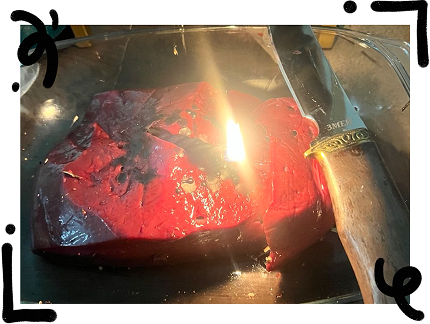
At first, you don’t understand, you feel: you see images, sense flows, perceive the world directly, without words. And only later, through these sensations, comes genuine knowledge—clear and precise.
But the catch is, not everyone manages to enter this state on the first try. I was lucky—I fell into that “hole” on my first try. But many are hindered by our perpetually busy mind, which chatters incessantly: “Okay, I should scratch my heel… Oh, what should I make for lunch tomorrow?… Must remember to text so-and-so…” Imagine the sound of an old TV when the antenna is poorly tuned—that’s the same kind of annoying hum in your head. Our task is to “pull the plug” and completely switch off that background noise, so that only pure silence and your question, the one you’re seeking an answer to, remain inside.
For awakening inner energy, something like Kundalini yoga works excellently.
Learning to meditate is like learning to ice skate: some need more time, others less, but the mechanism works for everyone. The main thing is to push through that noise, disconnect from everything, and simply allow yourself to fall inward. It’s precisely there, in that silence beyond the threshold of or
— How can we, as adults, learn to listen to ourselves?
— You know, you’re talking about the most fundamental thing—about how, from childhood, our trust in ourselves is killed. And this applies not only to esotericism; it’s about our entire lives.
Take the “third eye,” for example… It’s not some magical organ. It’s our innate ability to feel the world more subtly, to see energies, read moods, notice non-obvious connections. Children can all do this. Their “imaginary friends” often aren’t so imaginary. They see what we adults have unlearned how to notice.
And then the system comes along and starts handing out diagnoses: “You imagined it,” “Stop making things up,” “That’s not normal.” The most terrible words are that it’s not normal. And the child, to survive, begins to betray themselves. They say: “Okay, I won’t see that anymore. I’m afraid of it. It can’t be.”
We ourselves, in order to become “normal,” wall up our own sensitivity. The worst part is that we then repeat this with others. An adult who was forbidden to believe in miracles as a child will similarly clip their own child’s wings.
The greatest magic isn’t seeing spirits; it’s having the courage to trust what you feel, even if the whole world insists it doesn’t exist.
The real tragedy isn’t that children see ghosts, but that they are made to doubt it. They lose the connection to their very essence. And many live their whole lives with their “third eye” taped shut, deaf to the whisper of their own soul, convinced that the world is limited only to what can be touched. And then they wonder where the emptiness and melancholy come from.
While living organisms undergo translocation, deletion, and duplication, we offer scientific knowledge without mutations – only useful discoveries and theories.
Thank you!

Similar articles | Individuals

Anna Lisianskaia and Nikolay Latyshev
